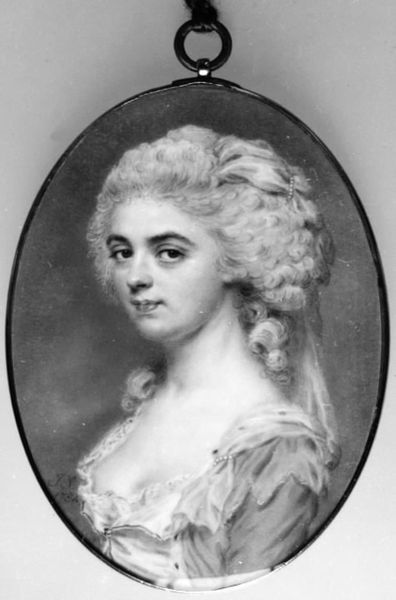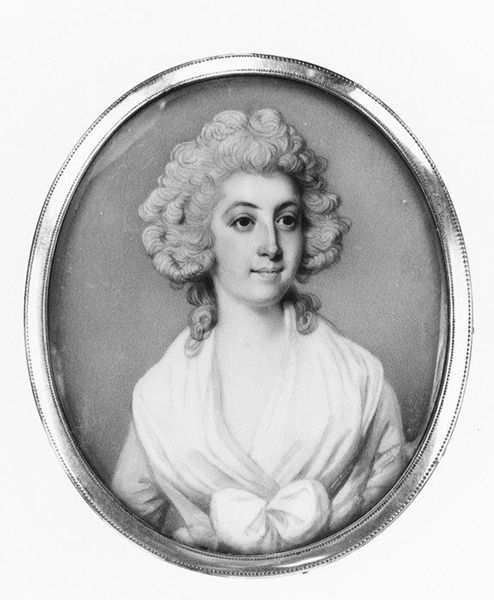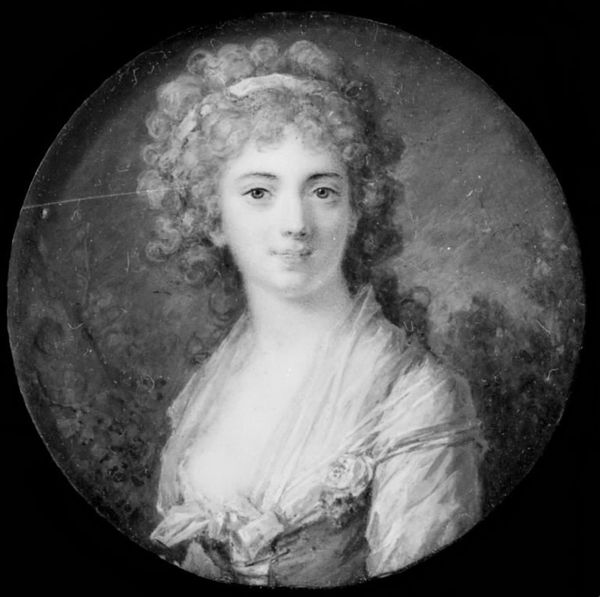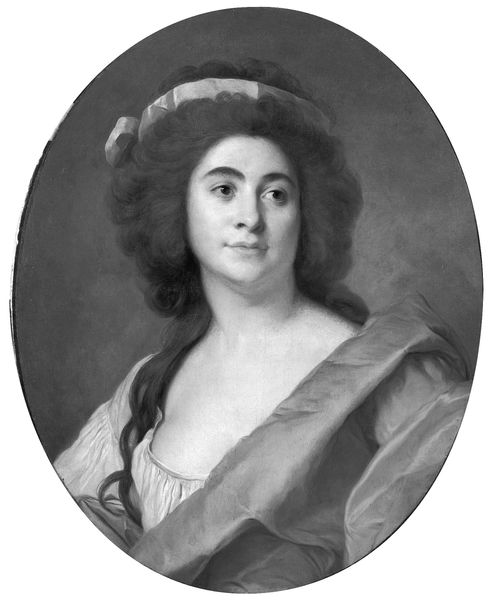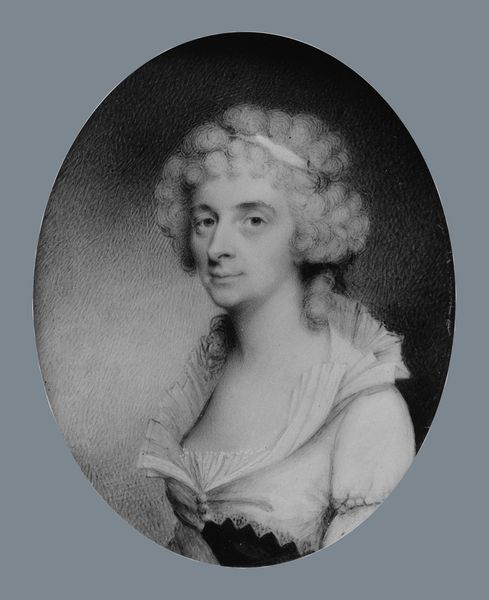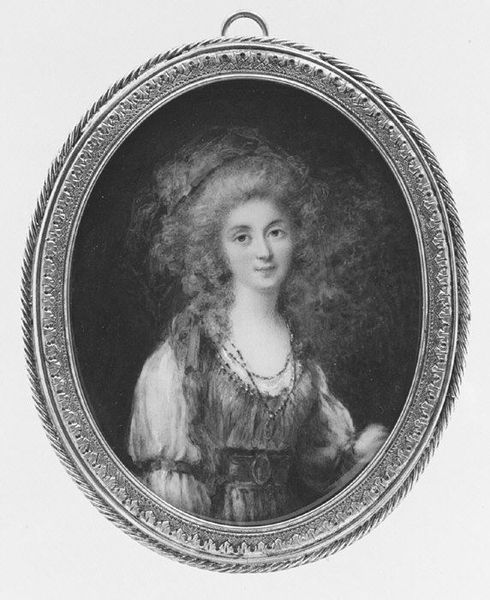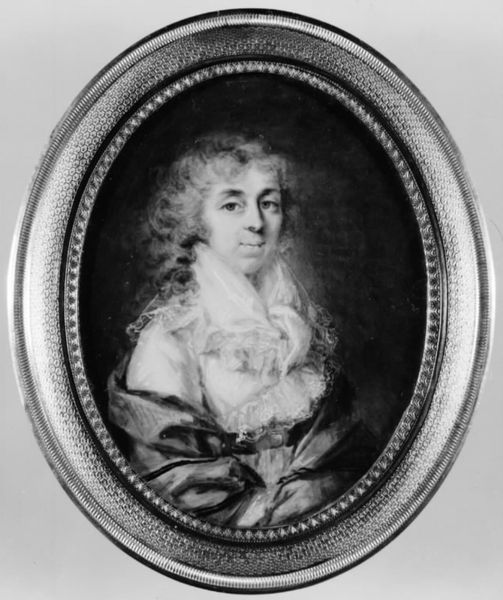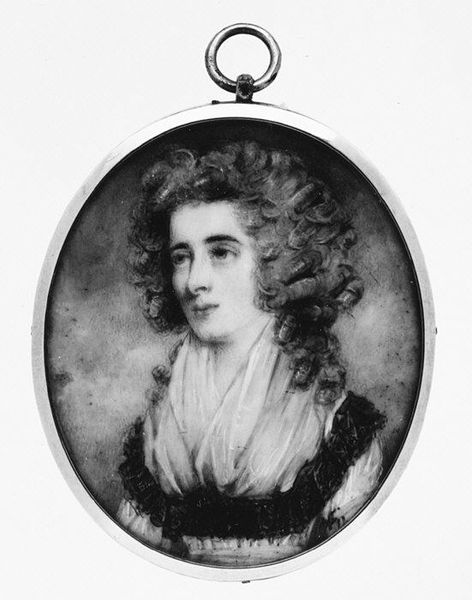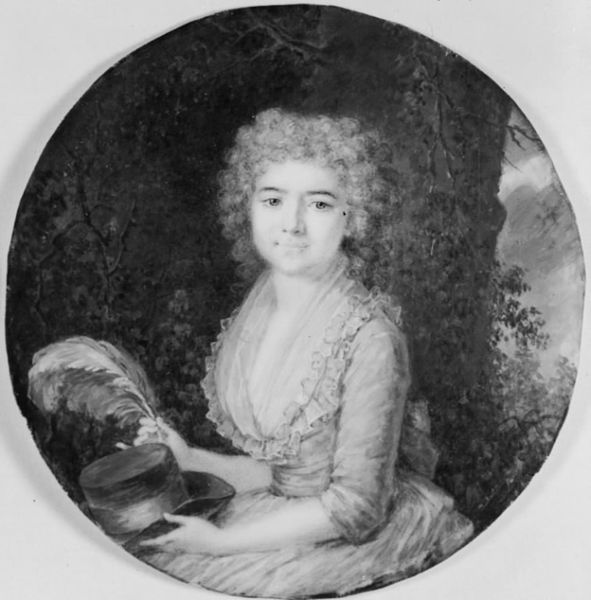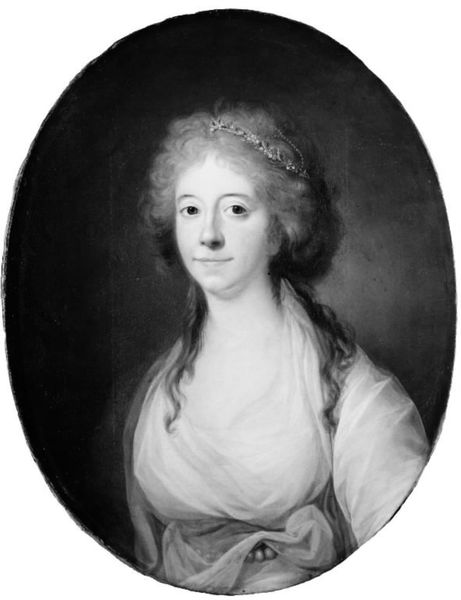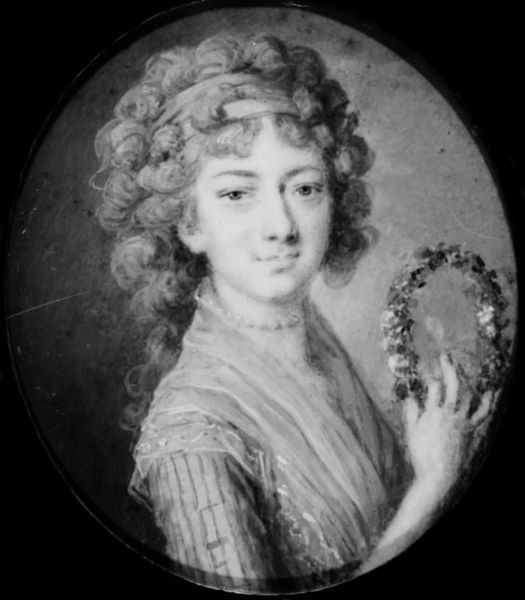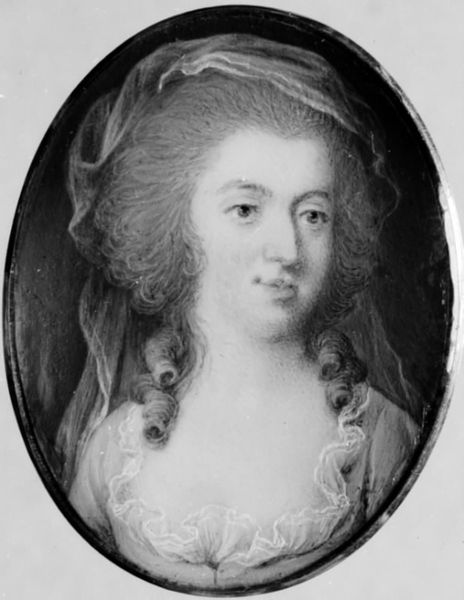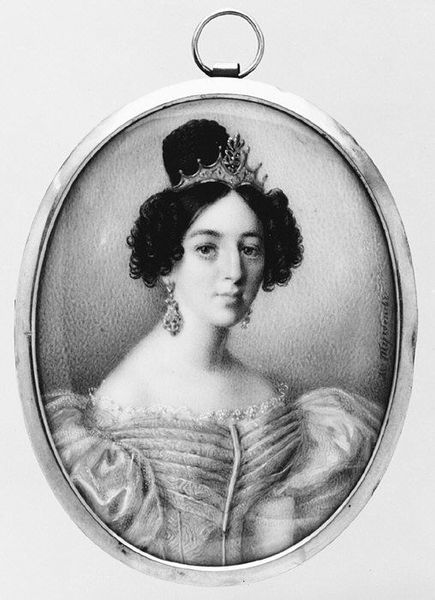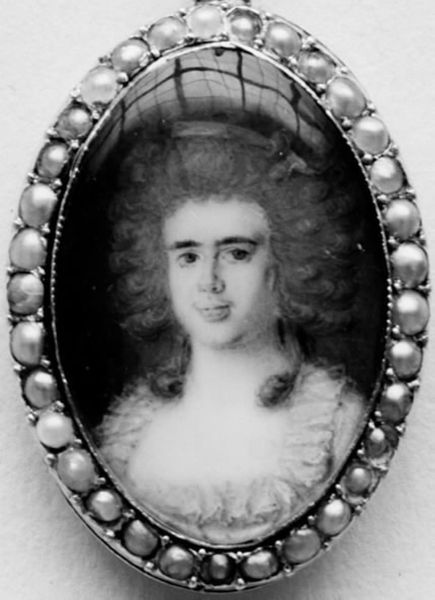
drawing, pencil, ivory
#
portrait
#
drawing
#
neoclacissism
#
portrait
#
charcoal drawing
#
black and white
#
pencil
#
ivory
#
miniature
Dimensions: 7.2 cm (height) x 5.7 cm (width) (Netto)
Friedrich Carl Gröger captured this unknown lady in a white dress with delicate strokes. The white dress, a symbol of purity and simplicity, was a common motif in portraits of the era, but its cultural roots run far deeper. The association of white with virtue is ancient, tracing back to classical civilizations, where priestesses donned white robes to signify their sacred roles. Look at how the folds of her dress, though simple, subtly evoke classical drapery. It reminds me of ancient Roman sculptures, where the fall of fabric was as important as the figure beneath. Now consider her gaze, slightly averted, hinting at introspection. It's a gesture that echoes across centuries, reappearing in Renaissance portraits and even in modern photography. This subtle expression connects us to a shared humanity, a recognition of inner thoughts and emotions. It is this powerful emotional aspect that engages us on a deep, subconscious level. Thus, the symbols of purity and introspective gaze continue their non-linear, cyclical progression, resurfacing, evolving, and taking on new meanings throughout history.
Comments
No comments
Be the first to comment and join the conversation on the ultimate creative platform.
